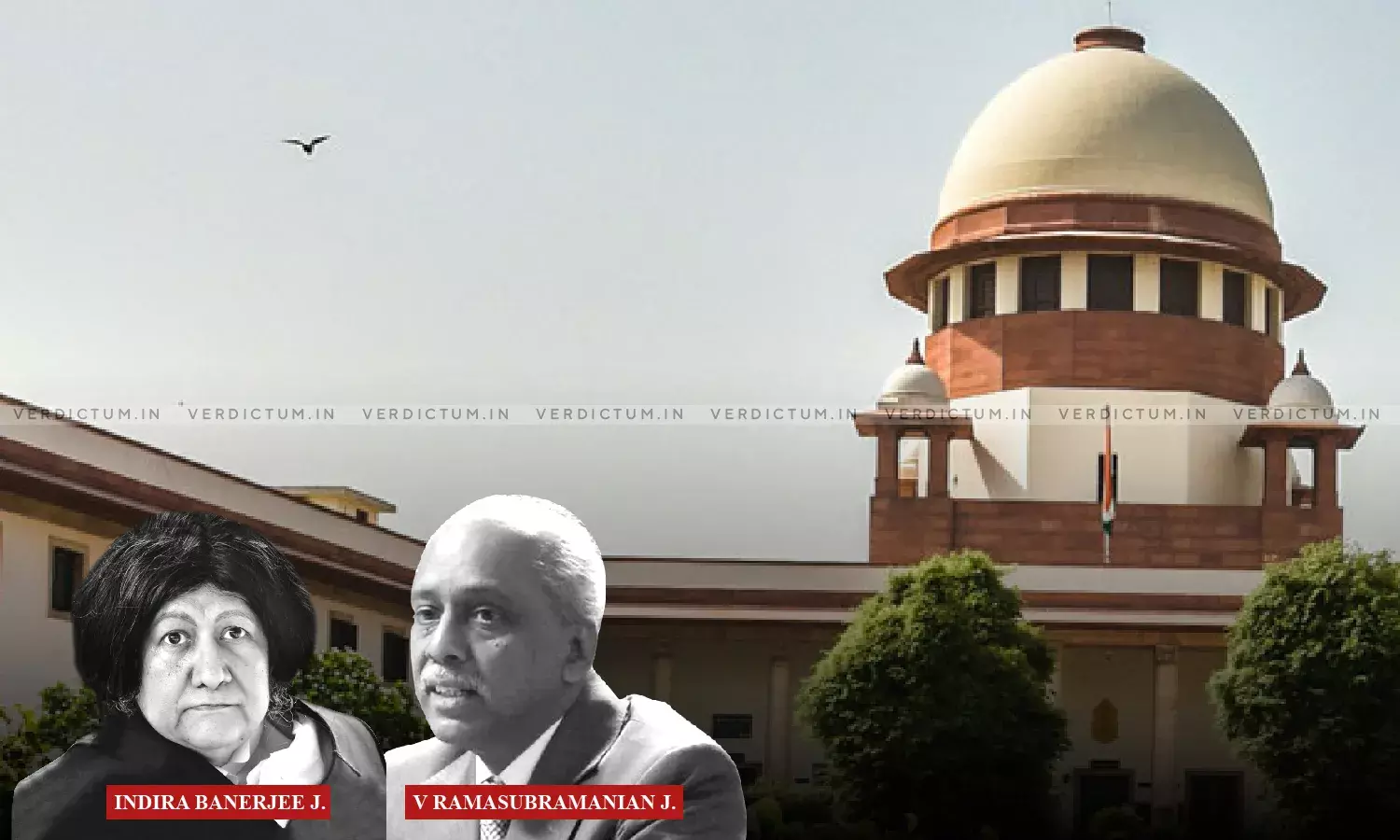SEBI Regulations: Likelihood Of Unpublished Price Sensitive Information Materially Affecting Price of Securities Must Be Analysed- SC

A Supreme Court Bench of Justice Indira Banerjee and Justice V Ramasubramanian heard an appeal by the Securities and Exchange Board of India (SEBI), which challenged an order of the Securities Appellate Tribunal.
The Supreme Court upheld the order passed by the Securities Appellate Tribunal, and observed that "while dealing with a case falling under Explanation (vii) of Regulation 2(ha), one may have to see whether there was any likelihood of the said information materially affecting the price of the securities of the company."
Senior Counsel Arvind P. Datar appeared for the Appellant and Counsel Somasekhar Sundaresan appeared for the Respondent.
The Respondent was the Chairman and Managing Director of Gammon Infrastructure Projects Limited (GIPL) until September 20, 2013, but soon after he ceased to be the Chairman and Managing Director and continued as a Director of the Company.
In this case, GIPL was awarded a contract by NHAI in 2012, and for the execution of the same, GIPL set up a special purpose vehicle called Vijayawada Gundugolanu Road Project Private Limited (VGRPPL). Similarly, another company called Simplex Infrastructure Limited (SIL) was awarded a contract by NHAI, for which SIL set up a special purpose vehicle called Maa Durga Expressways Private Limited (MDEPL).
GIPL entered into two shareholders agreements with SIL. Under these agreements, GIPL was to invest in MDEPL and SIL was to invest in VGRPPL for their respective projects. The mutual investments were to be tuned in such a manner that GIPL and SIL would hold 49% equity interest in each other's projects.
However, on August 09, 2013, the Board of Directors of GIPL passed a resolution authorizing the termination of both shareholders agreements. On August 22, 2013, the Respondent sold about 144 lakh shares held by him in GIPL, for an aggregate value of about Rs. 10.28 crores.
On August 30, 2013, GIPL made a disclosure to the National Stock exchange of India and BSE regarding the termination of two shareholder agreements.
Pursuant to an input received from the National Stock Exchange, about the aforesaid transaction and the possibility of the trading having taken place on the basis of unpublished price-sensitive information, SEBI conducted a preliminary enquiry, after which it passed an exparte interim order holding prima facie that the Respondent violated the provisions of Section 12A(d) and (e) of the SEBI Act, 1992. SEBI consequently restrained the Respondent from buying, selling, or dealing in securities and accessing the security markets directly or indirectly.
In the interregnum, SEBI completed the investigation and issued directions, followed by a show-cause notice. The show-cause notice was addressed to the Respondent, another company called Consolidated Infrastructure Company Private Limited, and two of its Directors. After the noticees filed their replies, the Whole Time Member (WTM) passed an order after giving them an opportunity of a hearing.
In the order, the WTM held the Respondent guilty of insider trading and liable to disgorge the amount of unlawful gains made by him to the tune of Rs.1.09 crores. The show cause notices to the other company were closed without any directions on the ground that no case was made out against them.
Challenging the order of the WTM, the Respondent filed a statutory appeal before the Securities Appellate Tribunal. The appeal was allowed by the Tribunal, and hence, SEBI approached the Supreme Court.
The Supreme Court found three issues in the matter, which were:
(i) whether the information regarding the decision of the Board of Directors of GIPL to terminate the aforesaid two contracts can be characterized as "price sensitive information" within the meaning of Section 2(ha) of the Securities and Exchange Board of India (Prohibition of Insider Trading) Regulations 1992?
(ii) whether the sale by the respondent of the equity shares held by him in GIPL, under peculiar and compelling circumstances in which he was placed, would fall within the mischief of "insider trading" in terms of Regulation 3(i) read with Regulation 4 of the Regulations?
(iii) whether SEBI should have taken into account the last trade price of the day on which information was disclosed instead of the trade price of the next day?
Analyzing the statutes pertaining to the first two issues, the Supreme Court concluded that the Respondent was certainly an insider, and the information he possessed relating to the termination of the shareholders' agreements would fall under the criteria outlined in Regulation 2(ha)(vii).
However, while analyzing the definition of price-sensitive information – the Court held that "while dealing with a case falling under Explanation (vii) of Regulation 2(ha), one may have to see whether there was any likelihood of the said information materially affecting the price of the securities of the company. Additionally, the activity in which the insider was involved also determines his culpability for violation of Regulation".
Considering that the Respondent did not wait for information about the market trend after the information became public, the Supreme Court held that the Respondent had no motive or intention to make undeserved gains by encashing on the unpublished price-sensitive information that he possessed. In that context, the Court held that "the unpublished price sensitive information was such that it was likely to be more beneficial to the shareholders, after the disclosure was made. Any person desirous of indulging in insider trading, would have waited till the information went public, to sell his holdings. The respondent did not do this, obviously on account of a pressing necessity."
Finally, the Court held that due to the nature of the answers to issues 1 and 2, there was no necessity to analyze issue 3.
Accordingly, the appeal was dismissed with no order to costs.
Cause Title - Securities And Exchange Board Of India v. Abhijit Rajan
Click here to read/download the Judgment

